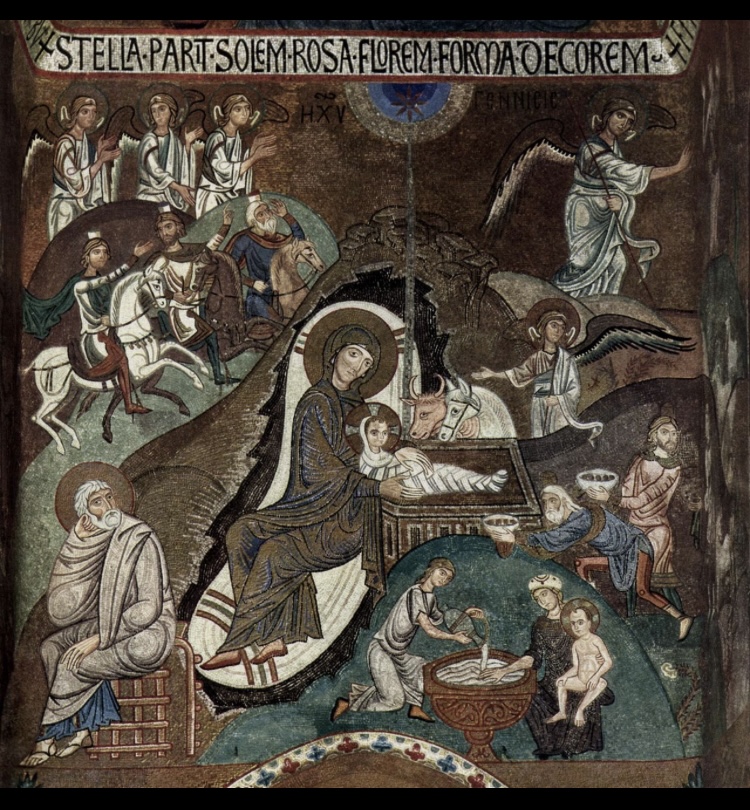
For while all things were in quiet silence, and the night was in the midst of her course, Thy almighty Word leaped down from heaven from thy royal throne, as a fierce conqueror into the midst of the land of destruction, with a sharp sword carrying thy unfeigned commandment, and he stood and filled all things with death, and standing on the earth, reached even to heaven. (Wisdom 18:14-16)
St. Luke tells us that there were shepherds in the field at night who were told by angels that Christ had been born. But the Gospel does not say that Jesus was born at night. Many readers simply assume that the angel appeared to the shepherds at night as Christ was being born. But that is not explicitly stated in the Gospel. The idea that Christ was born at midnight developed over time and was especially influenced by this text from the Book of Wisdom.
The passage from Wisdom is describing the Word coming down to slay the firstborn of Egypt at the time of the Exodus. The Word comes to redeem the Chosen People, slaying their enemies and leading them from bondage and death into freedom and life. This text was understood by the early Christians as also referring to the descent of the Word into Hell on Holy Saturday to destroy Death and Hell, leading the human race to salvation and life. This descent into Hell and Resurrection was the focus of the Easter Vigil. Over the centuries, the celebration of Easter Eve influenced the celebration of Christmas Eve and the descent of the Word at midnight was applied to Christmas as well as Easter.
Some early Christians did think that Christ was born at midnight even before this became a common idea influenced by the Wisdom passage. The Protoevangelium in the second century describes Christ’s birth at night and how the newborn baby filled the stable-cave with light that was so bright Joseph and the midwives he had gone to find could not enter the cave when they arrived. Gradually, as the light faded, they saw that Christ had been born already and was nursing at his Mother’s breast.
There was always brilliant light when God appeared in the Old Testament. Moses could not enter the Tent of Meeting because the light of God’s glory was too bright. (Exodus 40:35) The priests could not enter the Temple to serve when Solomon dedicated it because the light was too bright. (1 Kings 8) Many Christmas cards show beams of light shining from the manger and we sing about the bright beams of light from Christ’s face in Christmas carols.
Christ’s life begins and ends in a borrowed cave–the stable and the tomb. The light shines in the darkness when the Word descends at night into that stable and even to the dark depths of Hell to save the world. God’s activity to save–whether at the Exodus, at the Nativity, or at the Death and Resurrection–is always the same: he comes down to where we are and finds us there, no matter how dark that place is.
